Why has the Adelphi become Liverpool’s dirty secret?
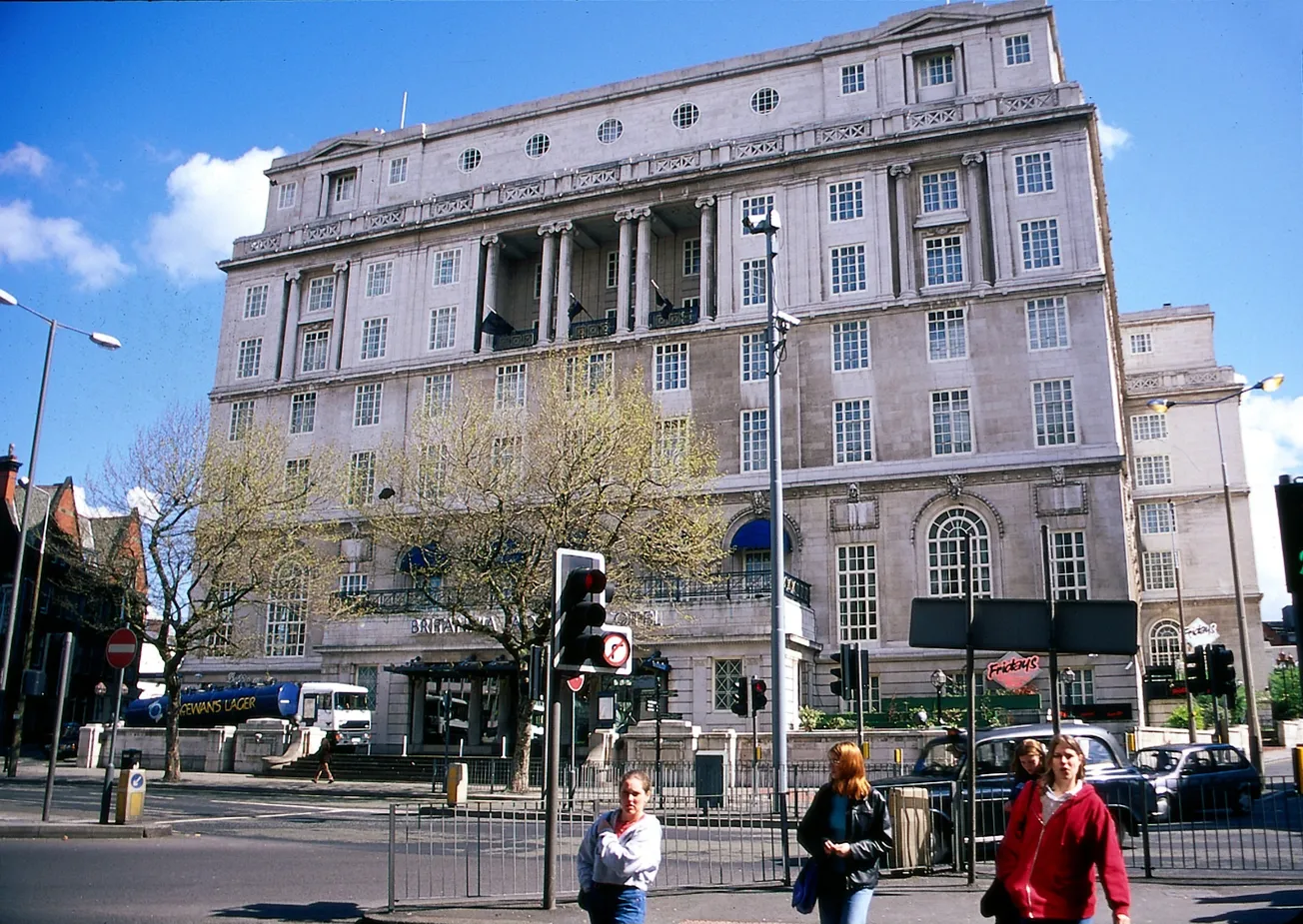
It was once Liverpool's grandest hotel, but under the direction of current owners Britannia it's a pale shadow of its former self
I’m sitting beneath towering palms, the sound of a pianist puncturing the middle distance. Sunlight filters through the leaded glass ceiling and Versailles-style French doors, refracting into rainbows that skitter across the starched linen. I act like I’m in Noel Coward’s Firefly estate in Jamaica. But I’m 18, and I’m having afternoon tea at the Adelphi with my nan.
Fast forward three decades and I glimpse that same grand, Empire-style ballroom at the top of the marble staircase that rises from reception. A portal to another time and place. A concierge ambles along the line-up of backpackers, coach-trippers and stag’n’henners. “Whose is that BMW outside?” he growls, “because if it doesn’t get moved it’s going to get a fuckin’ big scratch down it in a minute.”
Despite everything I know of this hotel’s recent history it’s hard to avoid a sense of cognitive dissonance, amid the chandeliers and the coffered arches, as Adelphi present shatters the ghosts of Adelphi past.
There are actually two queues — one for people to get their electronic room key and a second for people who’ve come back down to reception because it doesn't work. Soon, I will form the start of queue number three: people who’ve returned to reception because their keycard doesn’t work, had it run through the card reader, only to find that it still doesn't work and had to traipse back down to reception again.
So begins my Adelphi return visit. A crossfit class in frustration.
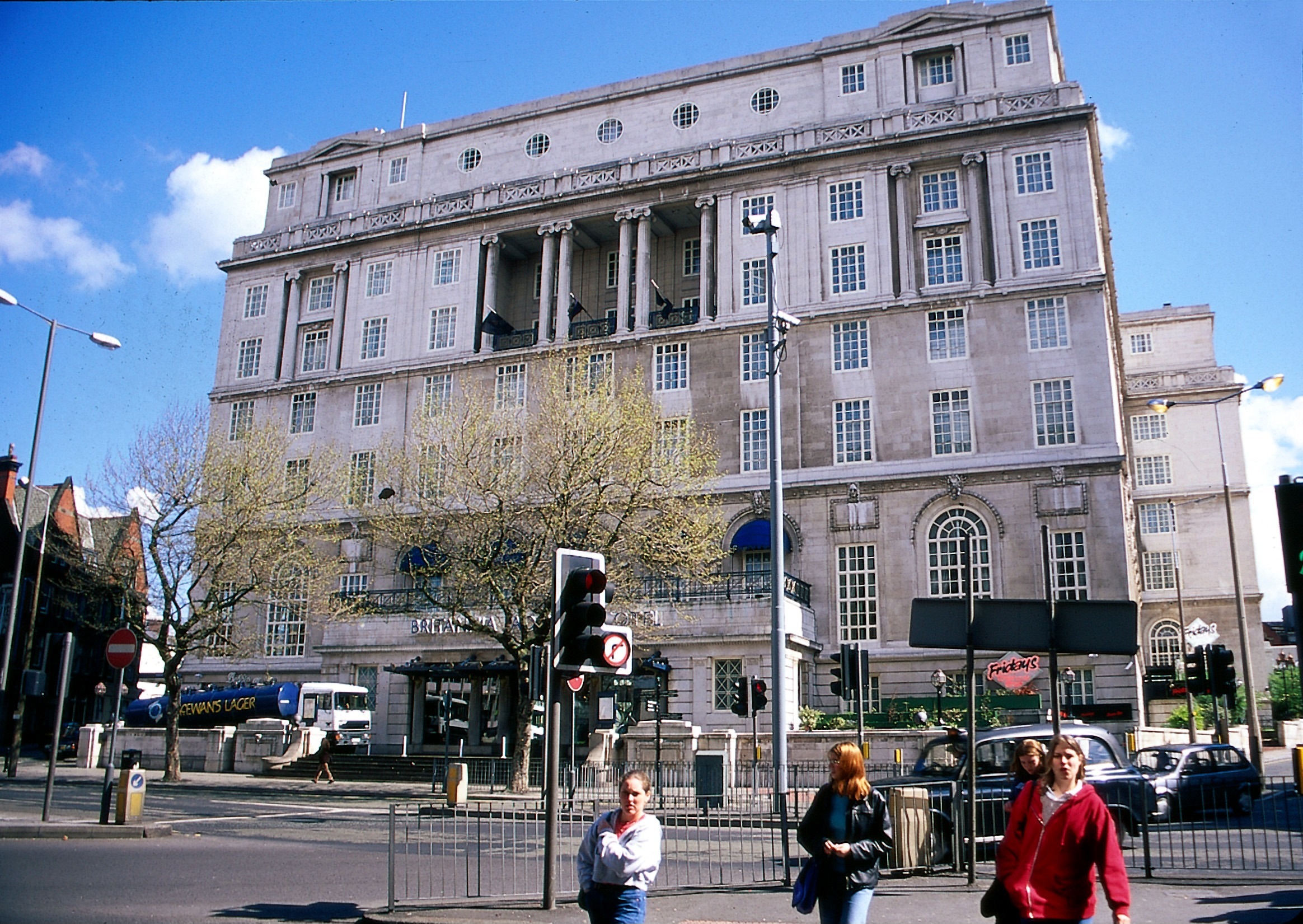
On my numerous trips back and forth I get chatting to the man with the master keycard, clearly living his best life today. “They’re just not interested,” he tells me, when I ask about the hotel’s defunct gym and swimming pool in the basement: still advertised on hoardings outside, despite the fact that the last swimmer wrung out his speedos five years ago. “They could have licensed it to another operator to run, but that involves actually doing something,” he says. “They’d rather just forget it ever existed. Do the bare minimum. Same with the Long Bar…” he points to the once-glamorous trysting place off the foyer, now barricaded with a wall of crisp boxes, “...that’s shut too.”
I have a vision of a body in trauma, slowly closing down its non-vital organs as it fights for survival on the operating table. But survive this indomitable old girl has: through two World Wars, recessions and riots, the Adelphi has kept those revolving doors swinging, if not exactly gleaming. While its body — that soaring cliff of Portland stone, with its 400 bedrooms and suite of Titanically-proportioned (and inspired) function rooms — remains, its heart and soul fled the scene many decades ago. As, it has to be said, has the soul of this sorry corner of the city.
“That’s the problem,” councillor Nick Small tells me the day before my visit, “If you were building a grand hotel now, you wouldn’t build it here.”
But here we are. It’s an admission, if it were needed, that the newly re-branded “Upper Central” district of the city is on its uppers and the Adelphi is its ground zero. Whereas once, all roads lead to this place, now they scurry away in shame.
We do too. When was the last time you went to the Adelphi, or recommended a night’s stay here to a visiting friend? But, as Small reveals, the city has aspirations as grand as the hotel’s chandeliers here. It’s mulling over a new “Times Square” style public space for the filthy expanse of pavement to the front of the hotel. The comparison is, perhaps unintentionally, ironic. Times Square might look cool on an Ikea print, but it isn’t a place where you’d want to loiter after dark.
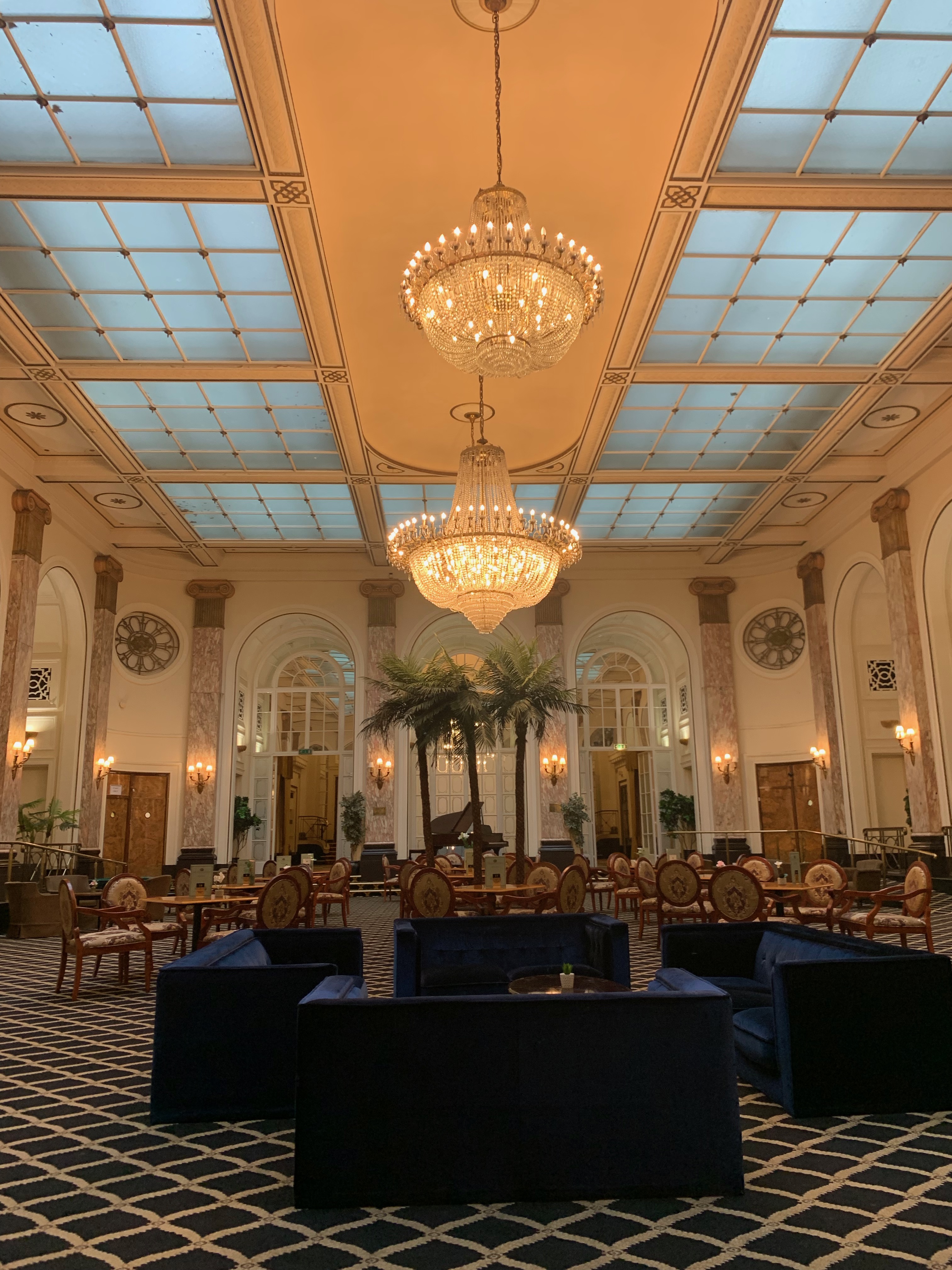
“It’s doing well on its own terms,” Small says, “but hopefully the masterplan we’ve put in place for the area should encourage it to step up its game a little. Of course I’d love it to be better. But we just can’t tell Britannia Hotels to pivot their entire business model.”
What Small doesn’t tell me is that the Adelphi’s “business model” has relied on the council more than you’d think. The city hammered out a deal to use the hotel’s unsold rooms as temporary accommodation for homeless households (update: a council spokesperson confirms that, while it's placed around 100 people there, the last was in November and there are no plans to use it going forward). An essential service, for sure. But is this the only way the city should be partnering with this once magnificent gem, or should its aspirations be more ambitious? Why isn’t Marketing Liverpool in talks with Britannia Hotels about how it can work with the Adelphi to coax it out of its coma? Why aren’t we hatching plans to make it a real showstopper for the city, like they’ve done in Buxton with the Crescent or the Midland in Morecambe?
I don’t have the answer to that because, despite repeated attempts, Marketing Liverpool won’t speak to me. It’s a shame, because Director Chris Brown is better placed than most to have an informed take on it — he used to be general manager of the city’s Moat House hotel. But their silence speaks volumes. Collectively, we’re embarrassed: because the Adelphi’s fall from grace is our fall from grace too. We had something special and, while our backs were turned towards the shiny new aparthotels of Liverpool ONE and the waterfront, we lost it.
My room cost me £42 — a full £15 cheaper than a night in a shared dormitory at the Albert Dock Youth Hostel. At these rates you don’t have to be the hotel inspector to realise that something has to give. How many chandeliers does the YHA need to maintain? No wonder the swimming pool’s gone. It’s kind of miraculous the taps are still running (well, more on that later…).
And the fat is about to be trimmed even further. Just last week, Britannia Hotels registered a pre-tax loss of £9.5m for the 12 months to 31st March 2021, and cut its employees down from 2,740 to 1,765. The Cheshire-based company blamed Covid, but was bullish about its future: “We employ tight controls on our costs, particularly labour costs, in order to ensure that the company maintains its competitive position,” it said in a statement.
If you want to know what “tight controls” “cutting labour costs” and “keeping competitive” look like, I invite you to spend the night in room 428. My room, when I eventually force my way in, is a smorgåsbord of entropy. In an effort to stop me trying to drown my head, the wash basin has been boarded up. The MFI fire sale that passes for furniture is scratched and flimsy, and plastered with more mahogany varnish than the cast of Hollyoaks. But it’s functional. Which is more than can be said of the bathroom.
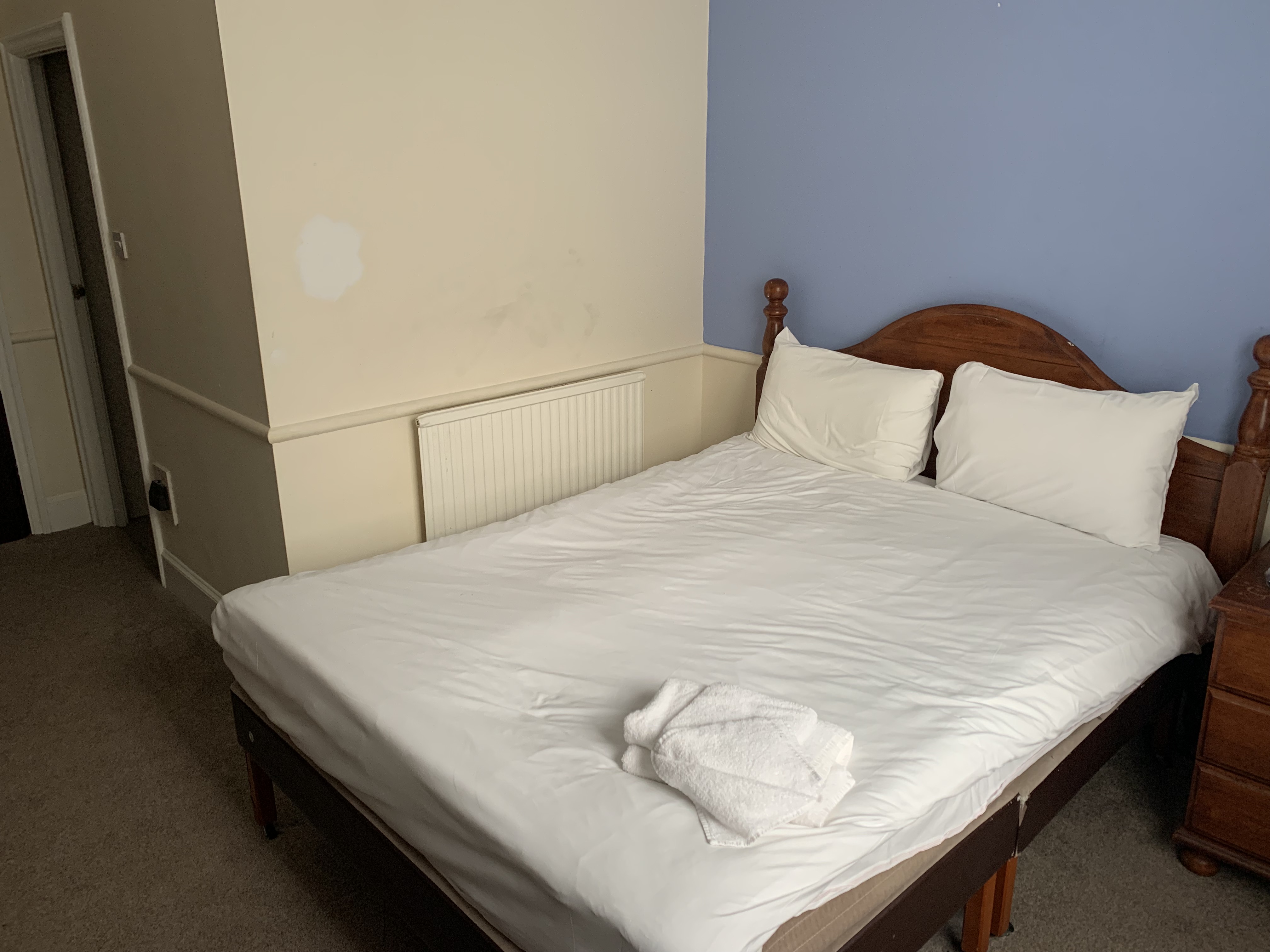
The door to the ensuite has clearly been kicked through and polyfillered back together many times. It’s hard to say whether previous residents were trying to break into it, or escape from it. When I try to run a shower I’m fairly certain it’s the latter. Only, it’s not really a shower. It’s a length of escaped metal piping that rears up like a King Cobra, spitting scalding water at anyone foolish enough to pull back the blood-stained shower curtain.
This should be the fun bit — taking potshots at the Adelphi. A hotel that makes the Premier Inn look like Claridge’s. But now I’m here, it feels as cruel as a blood sport. Because the hotel is like Liverpool’s Norma Desmond — a once magnificent confection dreaming of making the triumphant return she knows is her destiny. Of turtles swimming in the basement — 200 of them, bobbing about, waiting to be slaughtered and whisked into turtle soup. Of Roy Rogers’ horse Trigger, cantering up the stairs to meet him on the balcony (how he managed those revolving doors still keeps me awake at night), of paparazzi and glitterati, politicians and princesses.
I meet up with Liverpool historian Ken Pye in the lounge. I offer coffee. We scout around for a waiter, but it feels like those staff cuts have already hit. The place is more Mary Celeste than Titanic.
“Can we get a couple of lattes?” I ask the harassed man at reception, still trapped in keycard-gate hell.
“No. Sorry. There’s no service after four. I can give you a sachet of instant, for your room?” the man offers.
We head down into the cocktail bar to order two mineral waters. We’re given tonic water: “It’s the same,” a man in an anorak behind the bar informs me over a deafening cocktail of Sky Sports and Toto’s Africa competing for our attention.
“It’s tragic,” Pye says. “I don’t recommend this place to anyone. I can remember what it used to be. Having cocktails in the Long Bar, tasting my first vodka martini. It was the premier hotel in the North West, but it had a bohemian edge. It was fantastic.”
You have to go further back than Pye’s martini initiation to get a real taste of the Adelphi’s heyday. The hotel was designed by Frank Atkinson, who also decorated the interiors of the Selfridges Store in London and it was the largest hotel in the north of England with a wine list as long as Lord Street. “The hotel’s Palm Court string orchestra would play as guests took afternoon tea,” Pye tells me, as he rattles off the names of some of the previous guests: Franklin Roosevelt, Bing Crosby, Frank Sinatra, and Judy Garland. My money’s on Judy kicking in my bathroom door after she lost her battle with the hairdryer.
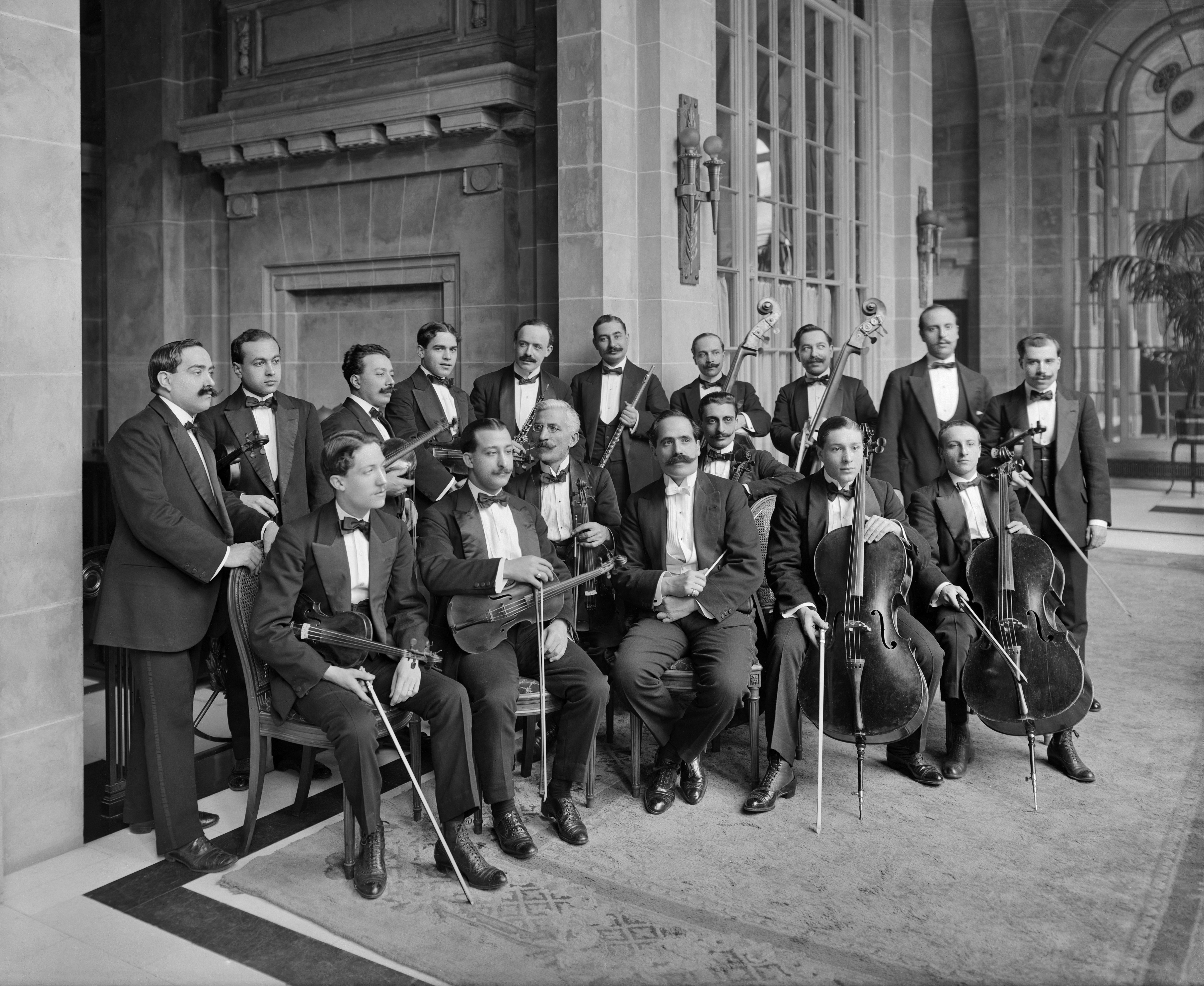
After its golden era, its bohemian period and the faded glamour of the ‘70s came the slow descent into its cryogenic years of the ‘80s and ‘90s, under the stewardship of new owners, Britannia Hotels. The chain’s largest shareholder is multi-millionaire Alex Langsam, who owns a mansion near the company’s Cheshire HQ. Langsam favours the acquisition of stately hotels that have seen better days, and has so far amassed over 60 of them.
When it’s not being used as temporary accommodation, the Adelphi’s main business model is of high churn, low cost, cut-to-the-bone hospitality. It’s the same for each of Britannia’s hotels: collectively voted the worst in the UK for the past nine years by the readers of Which? Magazine.
No doubt had The Post been published in Brighton, we’d be lamenting about the “mould infested rooms” in the Royal Albion; if we were in Folkestone we’d be reporting on the “brown and crusty” showers of the Grand Burstin, or maybe we’d share stories of the “toenails and smeared toothpaste” left as a treat for guests staying at the Cavendish in Eastbourne. Nice touch. Beats an After Eight on the pillow any day.
“Britannia has no idea what to do with the building,” Pye says of the chain which bought the Adelphi in 1983. “Of course it would take serious investment, but now that tourism is on the rebound, why are we building new hotels with no character at all, when we already have something that has the potential to be a flagship five star hotel for the city, right here?” It’s not difficult to buy into Pye's pipe dream. When a building’s bones are as good as the Adelphi’s you get the sense that it really wouldn’t take much to reverse its decline.
For all my reservations about my room, the suite of public rooms on the ground floor still dazzle. There’s a smell of fresh paint in the Sefton Suite, an exact replica of the first class smoking lounge on the Titanic, and if you replaced the threadbare armchairs of the Central Court with a job-lot from John Lewis you’d be well on the way to making the space Instagram friendly again. Especially as, on Instagram, you can ignore the smell of the school-canteen slop coming from the dining room.
No doubt Britannia Hotels would say — if I could speak with them, which, despite numerous attempts, I can’t — that if it wasn’t for their investment the Adelphi would have been boarded up long ago. That their way is the only way. That might have been true in the ‘80s, when my bathroom suite was fitted and Liverpool was minus Liverpool ONE and the Albert Dock. But the city has moved on; as has thermostatic shower technology.
We have the talent, and the ambition, in this city, to make world class hotels every bit as dazzling as the Adelphi once was. The redevelopment of Stanley Dock, in part to the Titanic hotel, was as audacious as it was inspired. While, at the top of the town, Hope Street Hotel’s recent expansion and award-winning spa shows how people are prepared to pay for a little style, conviviality and comfort.
Even the Premier Inn can charge £100 a night for their Hypnos beds and toasty showers at the Albert Dock. They understand that cheap can mean cheerful. Hotels have changed. The Adelphi, for all the wrong reasons, hasn’t.
Urban Splash founder Tom Bloxham knows more than most about how resurrecting a once-grand hotel can become a real catalyst for change. Almost 20 years ago, Bloxham’s award-winning regeneration company ploughed £14 million into Morecambe’s decaying Midland Hotel. Now the Art Deco pad shimmers like a pearl on the town’s re-energised waterfront.
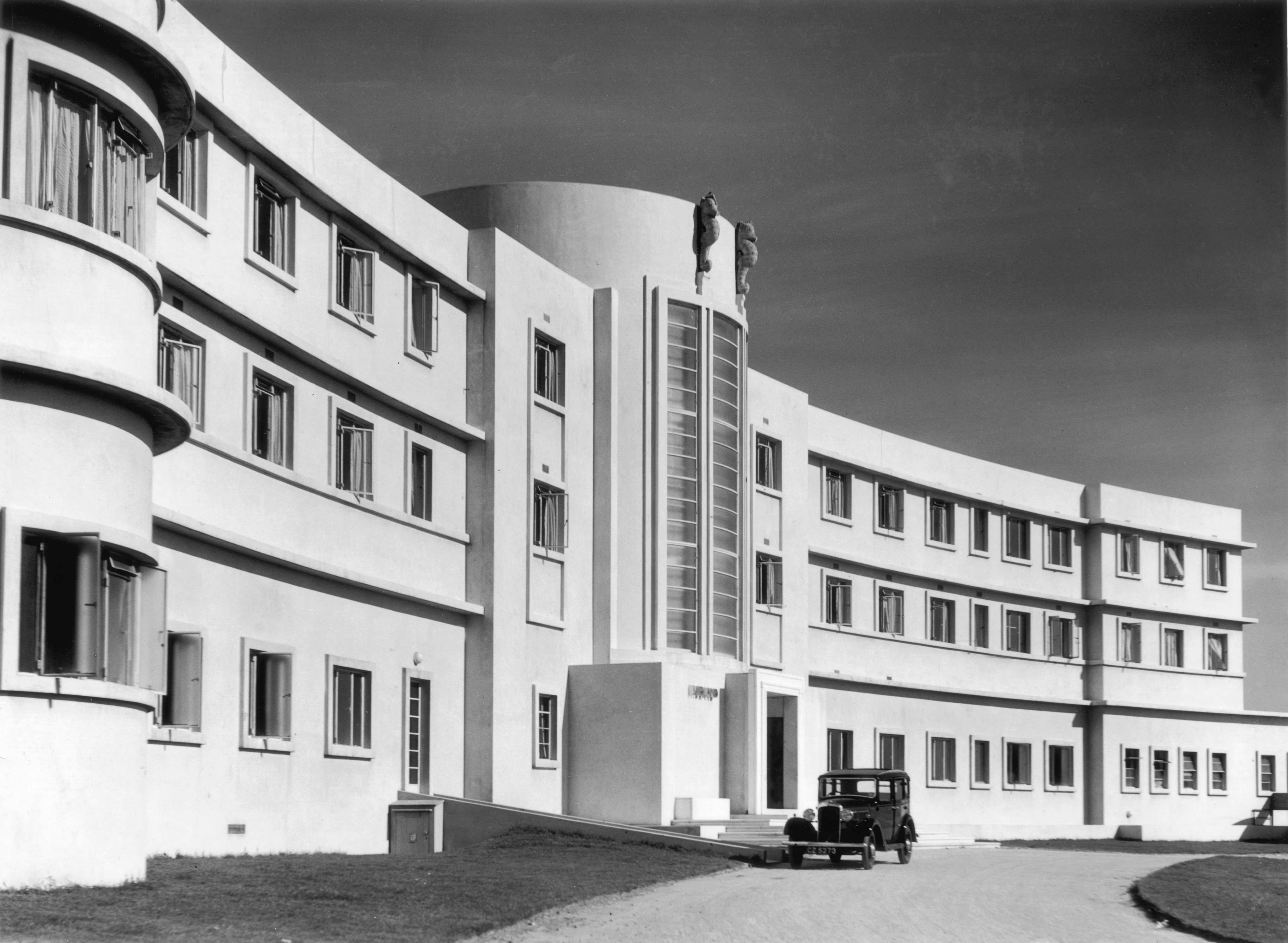
Soon, the hotel will be joined by the Eden Project of the North. In a major coup for the resort, construction of the £125 million attraction begins later this year. What’s the betting those geodesic domes and Amazonian palms would be there if it wasn’t for Bloxham’s vision? Imagine Liverpool’s Upper Central wastelands attracting a world class brand like the Eden Centre, instead of being home to Liverpool’s Beachy Head, Mount Pleasant’s NCP car park.
“We visited many times before taking it on,” Bloxham says. “What stood out most was the building’s sad decline after years of neglect, and it was something we wanted to change.” Talking of years of neglect, would Tom take on the Adelphi?
“As we don’t own it, it’s hard to comment specifically,” Bloxham says, “But like the Midland, the Adelphi has original features and a great heritage. I believe it could be given a new lease of life in the same way that the Midland was. But it needs collaboration and great design minds to make it happen.”
Bloxham’s got form in the city, helping resurrect The Tea Factory and Concert Square in the early days of Urban Splash. “We never say ‘It will never work’. Our view with listed buildings is to approach them sensitively, applying contemporary new design ideas and fusing them with the best of the building’s original fabric,” he says. “It’s challenging, but it’s a far better approach than losing the past that they represent. The Adelphi is a rich part of Liverpool’s history and yes, I believe it can rise again.”
Before Urban Splash, room rates at the Midland were around £36 a night. Now you’ll be lucky to get a room for under £150. And this is in Morecambe. For the past 25 years, Alison Wormleighton has edited The Good Hotel Guide. From her ringside seat she’s seen how much the hotel landscape has shifted since Britannia Hotels took the reins on Ranelagh Street. “Of course hotels can become a tourist destination in their own right,” Wormleighton says. “When Hope Street Hotel opened almost two decades ago it signalled a major change in how the city was viewed.”
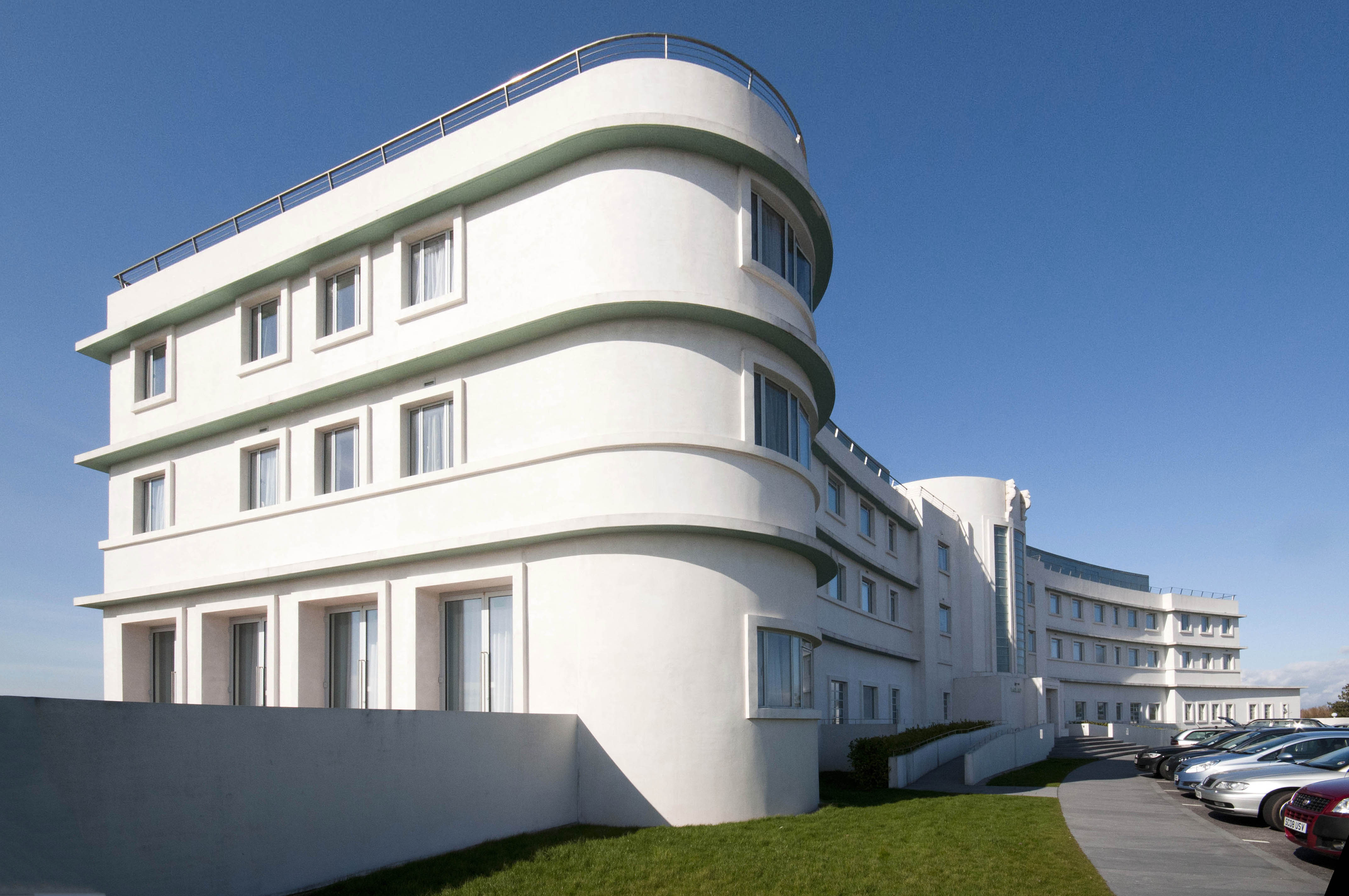
But Hope Street hotel had the deft direction of Mary Colston, who has real hospitality running through her veins like complimentary Molton Brown pink peppercorn shampoo; not a reality TV star screaming “just cook will yer”.
Like those roads that fan out in every direction from the steps of the hotel, there still exists a myriad different futures for the Adelphi. It can return to being a shelter for the temporarily homeless. It can revel in its reality TV notoriety, or it can be a charmless stopover for coach party punters, who’ll inevitably return home and let rip on TripAdvisor.
But it could be so much more. It could be magnificent. So what’s stopping it?
As I check out, I spy another hapless cohort of daytrippers stumbling around that cavernous ballroom, searching for signs of life; a welcoming smile. And I’m left with the feeling that it’s not the lattes that are missing from Britannia Hotels’ business model, it’s love.
Get get The Post’s journalism in your inbox every week, join our free mailing list below.

Comments
Latest
Is Liverpool resting on its laurels?
From Hoylake to St Helens, community cinema is making a comeback
Millions of tonnes of greenhouse gas to be piped under Liverpool Bay
The unexpected auction: A London fund manager is selling Merseyside homes from under their tenants
Why has the Adelphi become Liverpool’s dirty secret?
It was once Liverpool's grandest hotel, but under the direction of current owners Britannia it's a pale shadow of its former self